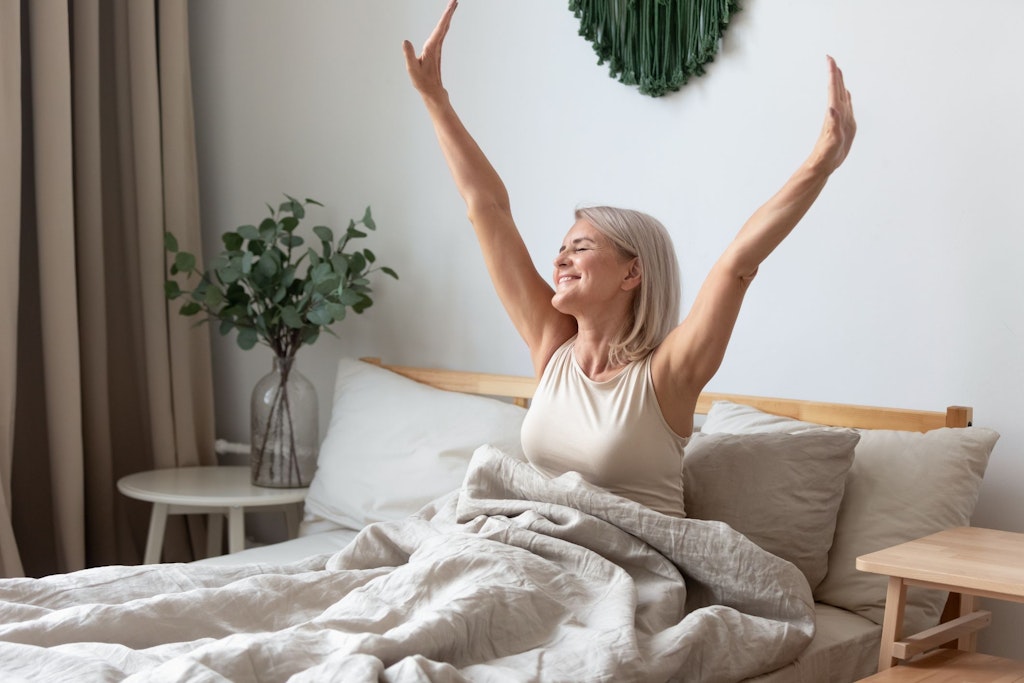Exercise could be the key to better sleep
Last updated on 5 March 2024

Getting enough sleep is important for good health, but making sure that one gets quality sleep is another matter. [Source: Shuttershock]
Key points
- Physical activity had positive effects on sleep quality, according to data from over 1360 adult study participants
- Two-thirds of Australians over the age of 65 are not getting the recommended amount of physical activity each day
- Other researchers also emphasise the importance of getting the right amount of sleep for your age
New research suggests that getting good quality sleep could be linked to keeping active during the day.
Researchers at the University of South Australia conducted a study including 1360 adults to examine different lifestyles and sleep. Results suggested that participants with ‘higher levels of moderate to vigorous physical activity had less troubled sleep, reduced tiredness, and better sleep quality’.
Only a third of Australians over the age of 65 met the recommended physical activity guidelines, as highlighted by the Australian Bureau of Statistics in 2022. This means that two-thirds of older Australians completed less than the recommended 30 minutes of daily physical activity which can include walking.
One of the researchers, Dr Lisa Matricciani knows the value of highlighting to Australians that getting better sleep is essential to maintaining good health and wellness.
“Despite what we know about sleep, many people still struggle to achieve a good night’s sleep,” Dr Matricciani said.
“When people think about sleep quality, they tend to focus on adjustments immediately before bedtime – for example, avoiding screens, not eating too much, and avoiding alcohol – but our research looks beyond this to the range of activities we undertake during the day,” Dr Matricciani continued.
Staying active in retirement doesn’t have to be difficult. Making small changes can help you get into the rhythm of exercising often. Some physical activity suggestions include:
- leaving the house and walking to a local park for lunch;
- taking the stairs instead of using the lift;
- walking or riding a bike for short distances instead of using the car.
However, researchers of other studies also highlight the importance of getting enough sleep for your age. Over 30 percent of adults are not getting the right amount of sleep, according to a recent study from the Adelaide Institute for Sleep Health and Flinders University.
Dr Hannah Scott, a researcher at Flinders University, understands the importance of this research to help Australians understand the risks associated with irregular sleep.
“This [research] is crucial because regularly not sleeping enough, or possibly too much, are associated with ill effects and we are only just realising the consequences of irregular sleep,” said Flinders University researcher Dr Hannah Scott.
While making sure that you are being active during the day, there are some things to consider when setting up your nightly routine for good sleep:
- avoiding cigarettes as they act as a stimulant and may keep you awake;
- only using the bedroom for sleep and intimacy: watching TV in bed can confuse your body into staying awake;
- not eating heavy meals before bedtime;
- using earplugs if you live in a noisy area.
You can learn more about the importance of sleep hygiene and different sleeping disorders in our article: Sleep disorders and the NDIS: What you need to know.
How do you like to stay active during the day?
Let the team at Your Retirement Living know on social media.
To get more information about how to stay healthy in retirement, subscribe to our free newsletter.
Relevant content:
Am I getting the right amount of sleep?
Sleeping less can increase the risk of dementia by 27 percent